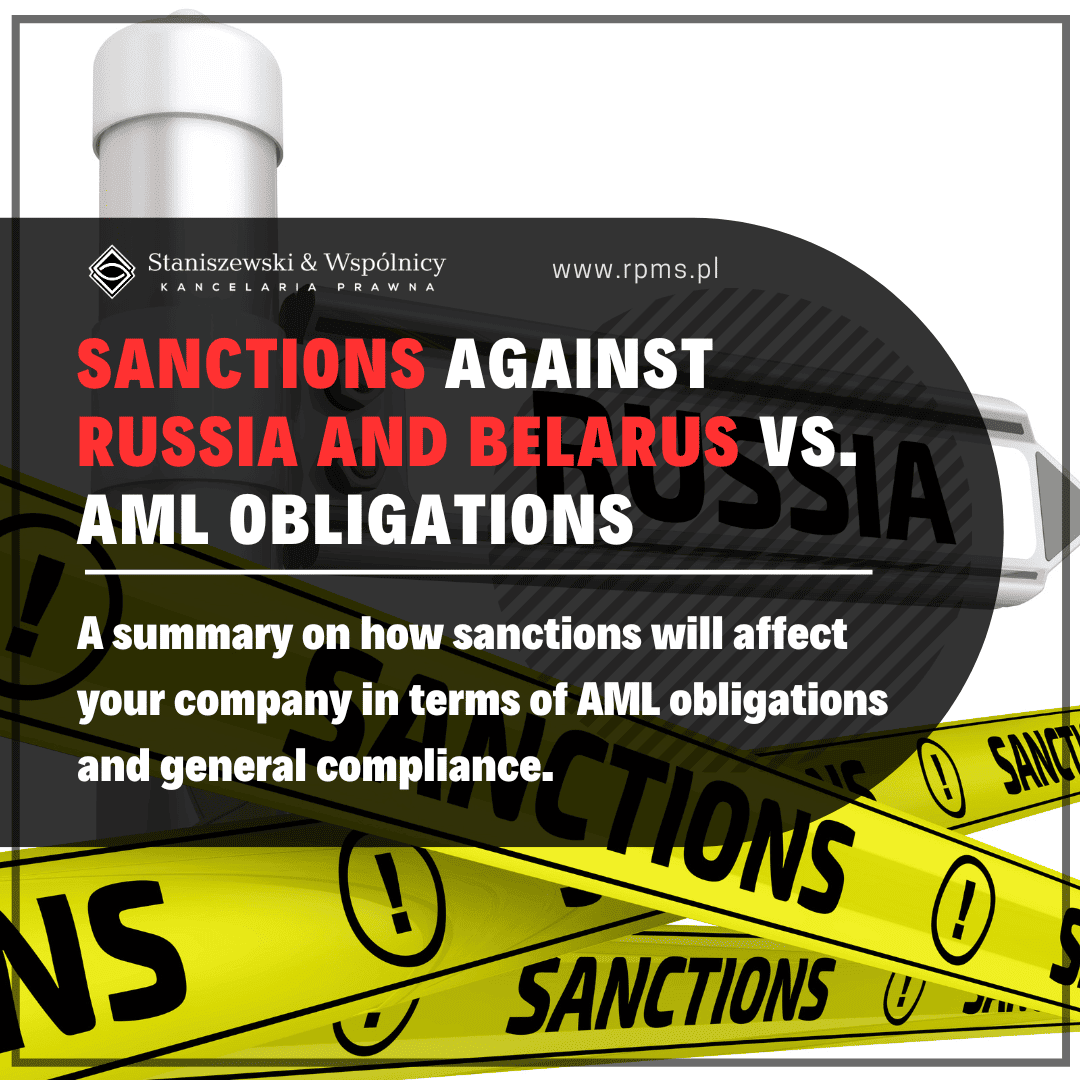Table of contents
Practically anyone with full legal capacity can carry out company registration in Poland, resulting in the formation of thousands of businesses each month, especially limited liability companies and sole proprietorships.
The registration process itself can be conducted online, but prior to that, decisions must be made regarding the form of business, tax structure, selection of the Polish Classification of Activities (PKD), registration with the Social Insurance Institution (ZUS) and the Tax Office, and compliance with other legal requirements.
Company incorporation and registration involve making a series of crucial decisions, and each choice will impact the future operation of your business. A solid business plan gives you a competitive advantage from the outset. If you want to ensure that you make the best possible decisions, consider collaborating with a law firm.
How to start company incorporation in Poland?

Poland is one of the fastest-growing economies globally, offering a well-regulated banking and financial sector. It is also among the best places to establish a company and gain access to the European market.
The process of company incorporation can be divided into several stages, with the first being the choice of the legal form of your new company.
Interestingly, the majority of foreign investors opt for a limited liability company (spółka z o.o.). This type of company is highly popular due to its low share capital, absence of ZUS contributions, and limited liability of partners. As a result, over 90% of foreign investments are carried out through limited liability companies.
Choosing a specific business form entails legal and tax consequences, making it worthwhile to seek advice from advisors during this stage of company incorporation. Experts with knowledge of the specific industry can help entrepreneurs maximize profits and reduce regulatory burdens. Legal advice at this stage facilitates:
- Choosing the optimal organizational and legal form.
- Regulating tax matters and taking advantage of tax benefits.
The next step is defining the key features of the business, including its name, share capital, address, and representation principles. Need assistance in this regard? Consult with our lawyers by filling out the form available on our website.
The third stage involves gathering all the required documents, the selection of which depends on the investment method chosen, whether direct or indirect. You can opt for:
- direct investment – in this case you personally become a shareholder of the company in Poland;
- indirect investment – that is, you set up a subsidiary and become a shareholder in a Polish company through your foreign company (parent company).
It also happens that certain industries are considered more sensitive or strategically important. These types of businesses have more obstacles to entering the Polish market, such as additional licensing requirements. If this is the case for your company, our lawyers will prepare a list of necessary documents.
Finally, you must indicate whether you prefer to come to Poland to finalize the company process in person or if you would rather handle it through a law firm. Keep in mind that company registration can be completed entirely remotely.
What does the registration of a company in Poland look like?
When registering a company, clients can choose between two methods: traditional registration or electronic registration through the KRS S24 system.
Traditional registration offers significant flexibility in shaping the company agreement. In contrast, electronic registration limits options to those provided by a predefined form. This means that significant changes cannot be made to the template agreement, which may be a significant drawback for some companies.
Of course, online registration is faster and more cost-effective. However, many individuals still opt for traditional company registration with a notary.
Why? Primarily because it allows for the incorporation of favorable provisions in the company agreement. Traditional registration is a way to secure the future and prevent potential business operations issues.

Documents Needed to Incorporate a Company in Poland

To streamline the company incorporation process, it’s advisable to gather the required data and documents beforehand. The documentation necessary for company incorporation primarily depends on:
- the type of company (business form, etc.)
- specific circumstances.
However, the most common requirements include:
- As an individual: Passport or ID card
- As a representative of a foreign company wishing to establish a subsidiary in Poland: Passport or ID card, extract from the local company register with an apostille (document certification by the competent authority of the country of origin)
If you wish to conduct company incorporation remotely, without coming to Poland, the law firm can represent you throughout the entire process. A notarized power of attorney obtained in your country of residence is required.
Company Registration in Poland
The stages of company registration in Poland, step by step:
1. Choosing the Appropriate Business FormBefore initiating the company registration, you must specify the structure of your business.
Popular choices in Poland include sole proprietorship and various types of partnerships (e.g., civil, capital – especially limited liability companies). The text later elaborates on the differences between these legal forms.
Need assistance in decision-making? Fill out the form outlining your business structure, and experts will help you choose the optimal legal form, informing you about all requirements and regulations related to the selected type of company.
2. Naming the BusinessEntrepreneurs in Poland have considerable freedom in choosing a company name. However, specific designations must be applied in the case of certain company types. For example, the name of a limited liability company must be preceded by the abbreviation “sp. z o.o.”
- Crafting a company name is a marketing-oriented decision, aiming for positive associations, brevity, and memorability.
Once you find the ideal name, it must be registered in the National Court Register.
3. Preparing Documentation for Company RegistrationDirectors and shareholders typically need to provide basic Know Your Customer (KYC) documents. These include director names, addresses, certified passport or ID copies, bank reference letters, and resumes for internal due diligence checks.
Company incorporation also requires having an address in Poland, which will be used for corporate and official records, and for managing company correspondence. The following addresses must be provided during company registration:
- place of business
- address for delivery
- place of storage of accounting documents
All of them may, but do not have to be identical. In this case you have complete freedom.
Determining the appropriate Polish Classification of Activities (PKD) codes, indicating the business area for statistical purposes, is also necessary.
Entrusting an experienced law firm with the preparation of the statute and company agreement ensures that these documents contain crucial information about the company, such as the amount of share capital, types of shares, details about the company and directors, and other specifics regarding the business.
By following these steps and ensuring all required documents are in order, the company incorporation process in Poland can proceed smoothly.
All documentation must be translated into Polish, and in the above matters, you can rely on the support of our law firm.
4. Filing the Application for Company RegistrationThe next step is to submit an application for registration in the National Court Register (KRS). For company registration, our lawyers will send you the founding act, the company agreement, the company’s statute, and the rest of the documentation. We will translate them into English to provide you with easy access. Depending on the chosen form of business, we will also assist you in obtaining the required licenses and permits.
5. Opening a Company Bank AccountDuring company incorporation, a personal or corporate bank account must be reported. Therefore, you need to open a corporate account in Poland. In most cases, everything can be done remotely through a representative.
6. Addressing Accounting and Tax MattersAfter registration, you will automatically receive a NIP (Tax Identification Number) and REGON. Subsequently, supplementary data must be submitted to the Tax Office. You can also register for VAT.
Other essential tasks include:
- Registration with the Social Insurance Institution (ZUS).
- Notifying about any employees.
- Preparing financial reports and tax returns.
- Entries into other registers.
- Obtaining permits for specific activities.
At the end of company registration, it is essential to fulfill tax and financial reporting obligations. Our law firm provides necessary accounting and tax services, ensuring that the company operates legally and in compliance with regulatory obligations.

Pros and Cons of Registering a Company in Poland

Economic Benefits:
- Poland ranks 6th among the largest economies in the European Union, with a steadily growing GDP comparable to Australia and representing the 5th largest consumer market in the EU (38 million inhabitants).
- The strategic location of Poland in Central Europe facilitates access to the European market.
- Poland is ranked 40th in the World Bank’s Ease of Doing Business Index 2020, influenced by the efficiency of the banking sector and the ease of securing credit for new businesses.
Tax Benefits:
- Low corporate income tax (CIT) at a rate of 9% for revenues up to 2 million EUR.
- From 2022, a 0% tax on retained earnings, known as the Estonian CIT, where CIT is not paid on profits generated by the company until they are distributed.
- Research and development tax relief allowing increased deduction of costs from the taxable base.
- Opportunity to invest in Special Economic Zones, providing exemptions from corporate income tax and property tax.
- IP Box relief, offering a preferential 5% tax rate on income derived from intellectual property rights.
Can a Foreigner Register a Company in Poland?
Foreigners can conduct business in Poland, subject to specific regulations, especially those outlined in the law of March 6, 2018 (on the participation of foreign entrepreneurs and other foreign individuals in economic transactions on the territory of the Republic of Poland).
The approach varies depending on whether the company incorporation is pursued by a citizen of a EU or EEA member state or by a citizen of the USA, Switzerland, or another non-EU and non-EEA country.
- EU and EEA citizens can establish and conduct business on the same terms as Polish citizens.
- Citizens of the USA and Switzerland can also register a company in Poland on the same terms as Polish citizens.
- Foreigners from other countries can establish a company in any legally permissible form, provided they have a residence permit that authorizes them to do so. If they do not possess a residence permit, they cannot engage in sole proprietorship, general partnership, or limited partnership.
Types of Business Structures in Poland
In Poland, there are various forms of conducting business, differing in terms of tax obligations, personal liability, privacy policies, compliance requirements, ownership, and management issues.
Therefore, it is crucial to choose a form closely tailored to the needs of the business before company incorporation. Considerations should include the market, scope of operations, and other factors to select the most optimal business structure.
Sole Trader
Approximately 79.7% of businesses in Poland in 2022 are estimated to be individual entrepreneurs. A sole proprietorship is the simplest, most basic form of business, particularly popular among small business owners and freelancers.
In this arrangement, one person is responsible for all aspects of the business. There are no capital requirements or the need to prepare agreements or statutes during company registration. Registration in the Central Register and Information on Economic Activity (CEiDG) is the only requirement.
Full financial reporting is not required for sole proprietorships if the company’s net revenues are at most 2 million euros.
Only foreigners with a temporary residence permit can engage in this form of business.
Partnerships
Partnerships include general partnerships, limited partnerships, partnerships, and limited partnerships with shares. This type of partnership is based on mutual trust and cooperation among partners.
Partnerships are organizational units without legal personality but possess legal capacity. They do not provide protection against liability, making them a common choice for family businesses or investors seeking easy management and company registration.
Complete financial reporting is required only when net revenues exceed 2 million euros or in the case of a limited partnership.
Limited Liability Company (Spółka z Ograniczoną Odpowiedzialnością – Sp. z o.o.)
The most popular type of company in Poland is the limited liability company. It has a separate legal personality, limiting the liability of partners to the extent of their capital contribution.
Sp. z o.o. allows for easy company incorporation, with a minimum required share capital of only 5,000 PLN (much less than a joint-stock company, where the minimum is 100,000 PLN).
It can be a sole proprietorship, contrary to the usual requirement of at least 2 partners. Additionally, this form does not obligate the payment of Social Insurance Institution (ZUS) contributions (except for a sole-shareholder limited liability company).
Other strengths include easy partner changes, the option to sell only a portion of one’s shares, the ability to benefit from a 9% tax rate and Estonian CIT, any business purpose, and significant advantages when selling the company.
The downside includes the inability to freely transfer ownership of shares and the fact that the company cannot be listed on the stock exchange.
For foreigners, company incorporation in this form requires a minimum of one shareholder and director of any nationality, a registered office in Poland, and a capital of 5,000 PLN. Additionally, such companies must fulfill certain accounting and reporting obligations regardless of their size.
Joint-Stock Company (Spółka Akcyjna – S.A.)
A joint-stock company can be private or public, depending on whether it wants to be listed on the stock exchange. It is a solution chosen most often by large enterprises and companies in the financial services sector. Like a limited liability company, it limits the liability of shareholders and directors and has a separate legal personality. However, a joint-stock company is obligated to comply with strict management requirements.
For foreigners, it requires a minimum of one shareholder and director of any nationality, a registered office in Poland, and a minimum share capital of 100,000 PLN, of which 25% must be paid. A joint-stock company is obliged to meet full financial reporting requirements and, unlike a limited liability company, must appoint an auditor and a supervisory board.
Branch
In addition to company registration in Poland, foreigners have an interesting alternative. Instead of establishing a separate subsidiary, any foreign company can choose to create a branch.
This solution is significantly cheaper to implement, and branches have no minimum capital requirements. All financial and tax reports are prepared along with the parent company’s accounts. The only requirement is appointing a representative in Poland.
However, there is a compromise. Branches are perceived as a legal extension of the dominant company. As a result, the parent company is fully responsible for any debts incurred by the branch.

Are you planning to register a company in Poland?
RPMS Law Firm has specialized in serving entrepreneurs since its inception. Our lawyers have been involved in numerous processes of organizing companies and establishing foreign branches. We have provided services for years, especially to clients in the financial, IT, modern technology, commercial, and production service industries.
With our assistance, you can make good, long-term decisions and fully utilize the potential of your business.
RPMS services include:
- consulting at every stage of company incorporation and registration, as well as establishment of branches and representative offices,
- comprehensive service regardless of which country you live in – we will complete everything remotely,
- acting according to our own developed procedures, thanks to which we will efficiently guide you through the process of company registration,
- preparation of draft articles of association and articles of association of companies, legal opinions, services for company bodies and ongoing corporate services,
- preparation of due diligence analyses.
Do you have questions? Fill out the form and get expert legal advice.

FAQ (Frequently Asked Questions)
The costs of incorporating a company are comparable to those of establishing companies in other Central European countries. Consider registration fees, accounting, company setup service costs, and minimum share capital.
In a joint-stock company, the minimum capital requirement is 100,000 PLN, and for a limited liability company, it is 5,000 PLN. The registration fee for entry into the National Court Register is around 600 PLN.
How long does it take to set up a company in Poland?
In online company incorporation, it takes 1-5 days, while in the traditional mode (at a notary), it takes 2-12 weeks.
How to open a company in Poland?
Choose a form of doing business, prepare the required documents, and submit them to a notary or through the S24 system. Subsequent steps include signing the company’s statute and submitting the registration application to the National Court Register.















